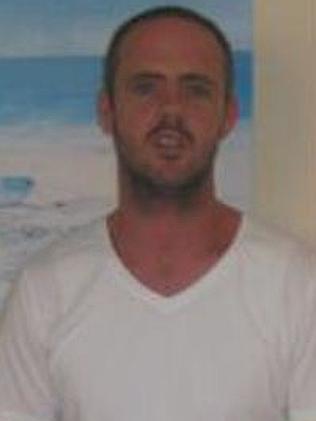
David Terelinck was deemed mentally unfit to stand trial for the stabbing death of his partner. Source: Supplied
DOZENS of mental patients detained in government facilities are failing to return from leave every month, including forensic patients held for serious and violent crimes.
Figures obtained by The Sunday Mail in the wake of the escape of killer David Terelinck from The Park Centre 11 days ago reveal up to 10 forensic order patients, such as Terelinck, and 50 to 70 involuntary order patients are absent without permission (AWOP) each month from mental health facilities Queensland.
ALERT: Authorities wait as killer walks
Police located Terelinck, who was deemed mentally unfit to stand trial for the stabbing death of his partner, at Tweed Heads Hospital yesterday. He was returned to The Park Centre for Mental Health at Wacol, in Brisbane’s west.
He had been granted leave as part of his treatment plan on December 17 but failed to return.
Acting Queensland Health deputy director-general Dr Bill Kingswell said the Director of Mental Health annual report highlighted an increase in AWOP events in recent years.
“There were 3700 AWOP events in 2012/13 financial year, up from 3182 the previous year,” he said.
But Dr Kingswell said the number of forensic order patients absconding had declined from about 20 per month in late 2013, to the current level of five to 10 per month.
“Most are returned within 24 hours,” he said.
A forensic order patient is someone who has been charged with a crime, but found to be of unsound mind or unfit for trial by the Mental Health Court.
Involuntary order patients are people with a mental illness who have impaired capacity to make decisions about their care and there is a risk of further deterioration, harm to the individual or to others.
As of November 30, Queensland had 762 forensic order patients, including 586 who had been approved for community leave.
“Fewer than one in five were detained in relation to very serious offences,” Dr Kingswell said. “There is only a very small group that doesn’t have access to any leave.”
Although most patients who abscond do so while on community leave, Queensland Health is backing it as an integral part of treatment plans.
“(Leave) is granted following clinical recommendations to the Mental Health Review Tribunal based on the patient’s recovery, mental state, risk factors and community safety,’’ Dr Kingswell said.
A recent Queensland Mental Health Commission report found most patients who absconded did so because they did not feel safe in their care.
